As cities become smarter and more connected, one area of urban life is quietly undergoing a transformative revolution—parking. Often overlooked, parking has long been a source of frustration for drivers, inefficiency for businesses, and congestion for cities. The introduction of smart parking solutions, powered by AI, IoT, real-time data, and mobile technology, is not just improving the driver experience; it’s also delivering tangible benefits across several industries.
By leveraging digital innovation, smart parking eliminates traditional inefficiencies and creates smarter, more scalable infrastructure that industries can rely on to improve operations, enhance customer satisfaction, and drive revenue. While the benefits of smart parking are far-reaching, a few sectors stand out as particularly well-positioned to reap its rewards.
Here are the top four industries that benefit the most from smart parking systems.
1. Retail and Commercial Real Estate
Why it benefits:
Retail businesses and commercial real estate developers depend heavily on foot traffic and consumer convenience. For shopping malls, retail centers, and business complexes, parking is one of the first touchpoints customers interact with. A poor parking experience can directly result in lost customers and revenue.
Key Challenges:
-
Congested parking lots during peak hours
-
Frustrated customers abandoning visits due to lack of parking
-
Inability to track parking demand in real time
-
Manual ticketing and cash payments causing delays
How Smart Parking Helps:
Smart parking provides real-time space availability, automated access control, and digital payment systems, ensuring a smooth, fast, and hassle-free parking experience. AI-driven analytics also allow mall and retail managers to understand peak parking times, adjust pricing strategies, and allocate spaces more effectively. Digital guidance systems lead drivers directly to available spots, reducing wait times and improving overall customer satisfaction.
In the case of commercial buildings, smart parking can also be a value-added amenity that improves property appeal, increases occupancy rates, and boosts leasing potential.
2. Healthcare Facilities
Why it benefits:
Hospitals, clinics, and healthcare campuses often experience high volumes of patient and visitor traffic, leading to strained parking capacity and logistical challenges. In emergency situations, every second matters, and delays in finding parking can have serious consequences.
Key Challenges:
-
Limited parking during visiting hours and emergencies
-
High turnover of vehicles throughout the day
-
Inefficient lot monitoring and management
-
Poor parking accessibility for elderly or disabled patients
How Smart Parking Helps:
Smart parking systems can optimize space usage through real-time tracking and occupancy sensors, ensuring that patients and visitors can quickly locate available spots. Priority parking zones can be designated for emergency services, staff, or accessible parking needs. Additionally, healthcare administrators can use usage data to improve operations, forecast peak demand, and make informed decisions about future infrastructure investments.
Contactless payment and pre-booking options also offer added convenience, reducing stress for patients and caregivers alike.
3. Airports and Transportation Hubs
Why it benefits:
Airports and transit stations are high-traffic environments where efficient parking is critical to the overall user experience. Delays in parking can result in missed flights, crowded terminals, and increased passenger stress.
Key Challenges:
-
High volume of vehicles in short time frames
-
Difficulty managing short-term and long-term parking options
-
Congestion at entry and exit points
-
Inefficient management of multiple parking zones
How Smart Parking Helps:
Smart parking enables dynamic space allocation, reservation systems, and integrated digital payments that streamline the entire parking process. Long-term travelers can reserve spots in advance, while short-term visitors are guided to the nearest available zones through signage and mobile apps.
AI-powered systems can also differentiate between types of users (e.g., frequent flyers, airport staff, VIP guests) and optimize parking allocation accordingly. This level of personalization and automation reduces delays and enhances airport efficiency, all while improving passenger satisfaction.
4. Hospitality and Event Management
Why it benefits:
Hotels, convention centers, and event venues often face sudden spikes in parking demand due to conferences, weddings, and seasonal tourism. Inconsistent availability and long entry queues can damage the guest experience and tarnish brand reputation.
Key Challenges:
-
Managing unpredictable surges in parking demand
-
Lack of visibility into space availability
-
Manual validation and verification processes
-
Difficulty accommodating VIP or group bookings
How Smart Parking Helps:
With pre-booking capabilities, digital guest verification, and valet integration, smart parking offers a seamless experience tailored to hospitality standards. Real-time availability tracking ensures that even during high-demand events, guests are efficiently directed to appropriate zones.
Venues can also access usage reports and occupancy data to forecast needs, manage staffing, and adjust pricing. Integration with event ticketing systems allows for a connected experience, where parking passes are automatically issued upon event registration.
In premium hotels, the ability to offer automated valet services or EV charging stations through smart parking technology becomes a competitive advantage, driving customer loyalty and satisfaction.
Bonus: Municipalities and Smart Cities
While not an industry in the traditional sense, local governments and city planners stand to gain immensely from smart parking. By reducing congestion, optimizing infrastructure usage, and lowering emissions, cities can meet sustainability targets, improve quality of life, and streamline urban planning initiatives.
With data collected from smart parking systems, municipalities can:
-
Monitor traffic flow and parking demand in real time
-
Enforce regulations more efficiently
-
Enable dynamic pricing for peak hours or high-demand zones
-
Plan future infrastructure developments based on accurate usage insights
Final Thoughts
Smart parking is no longer a futuristic concept—it’s a present-day necessity. By addressing long-standing issues like congestion, lost revenue, and poor user experience, smart parking solutions are transforming how various industries operate.
From retail and healthcare to airports and hospitality, the benefits are clear. These industries thrive on efficiency, customer satisfaction, and operational excellence—making smart parking an essential asset in their growth strategies.
As urban environments continue to evolve, industries that embrace parking innovation will not only enhance their service offerings but also contribute to the broader vision of sustainable, connected, and smart cities. Parking may seem like a small part of the urban puzzle, but for these industries, it’s a powerful lever for transformation.
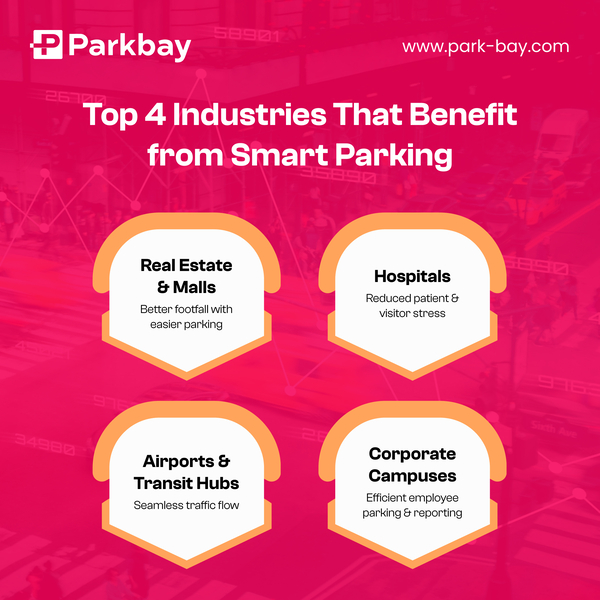



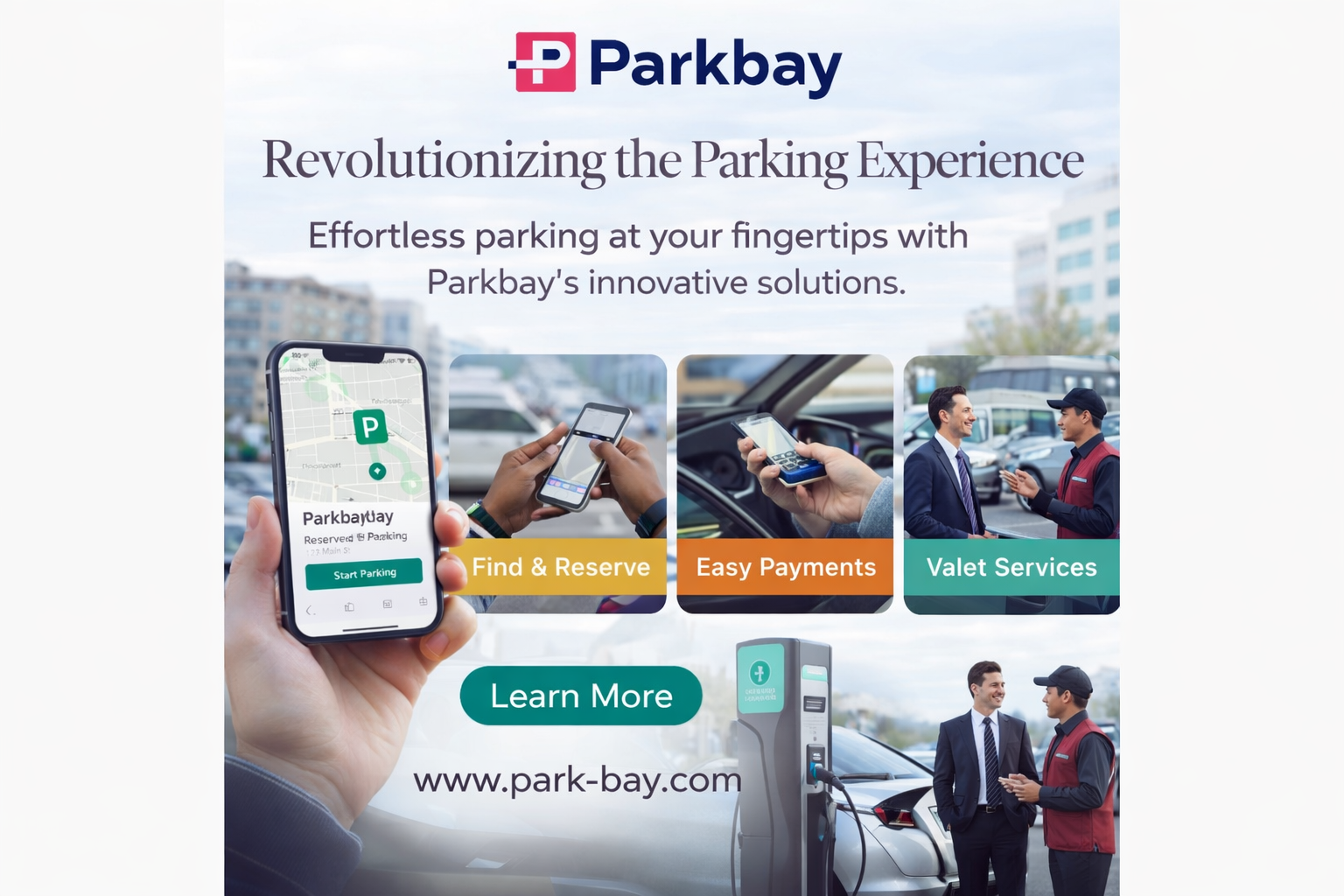
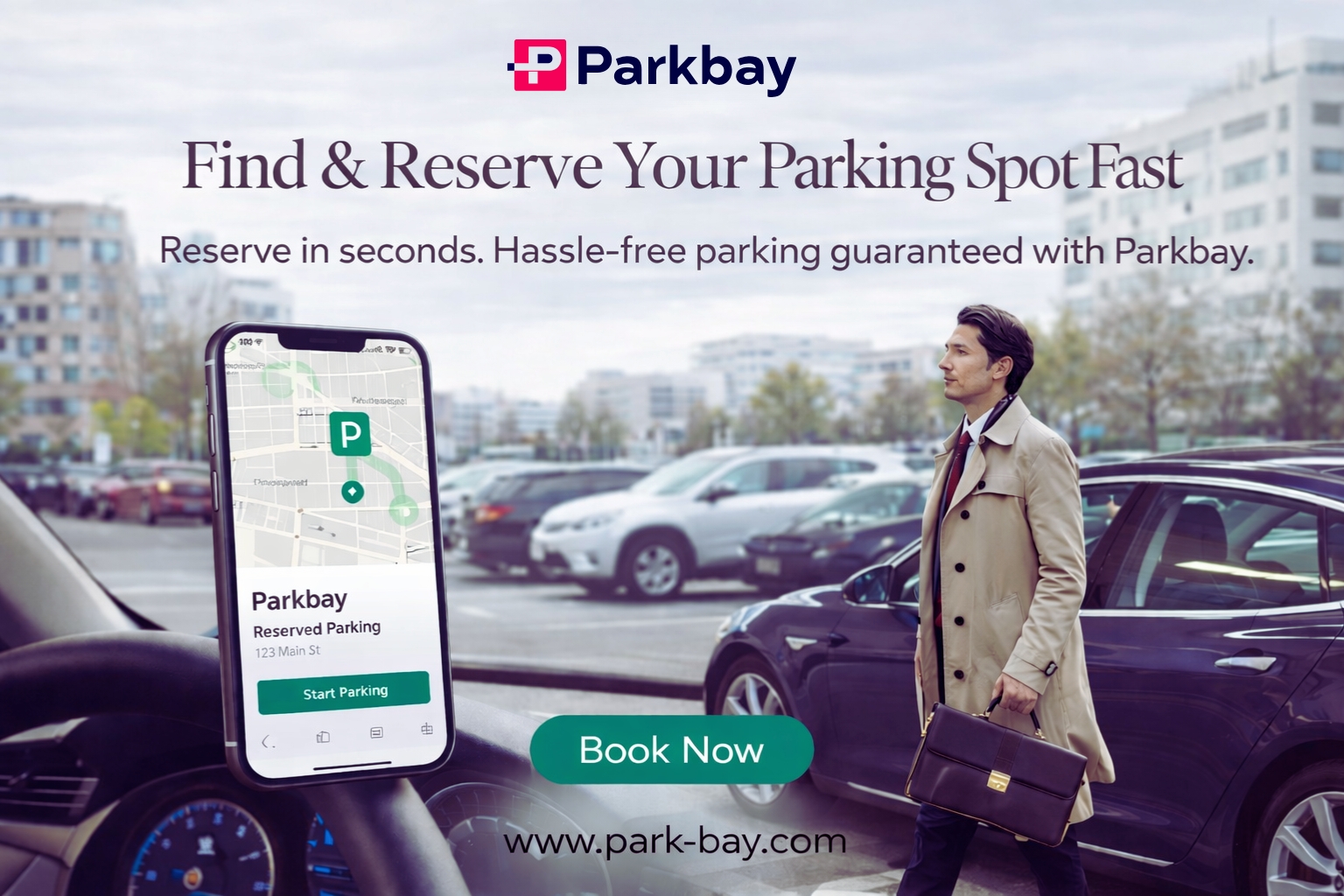
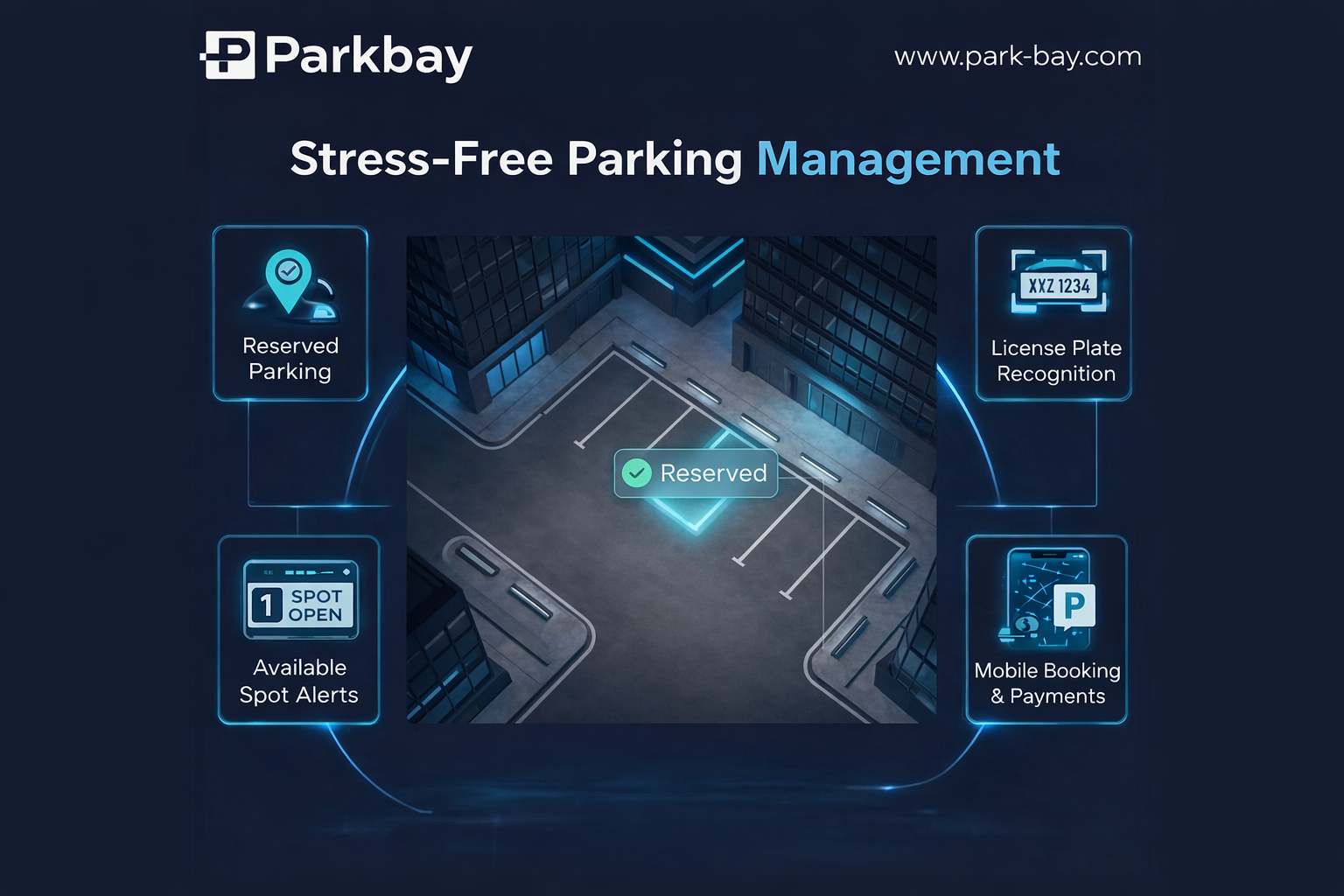
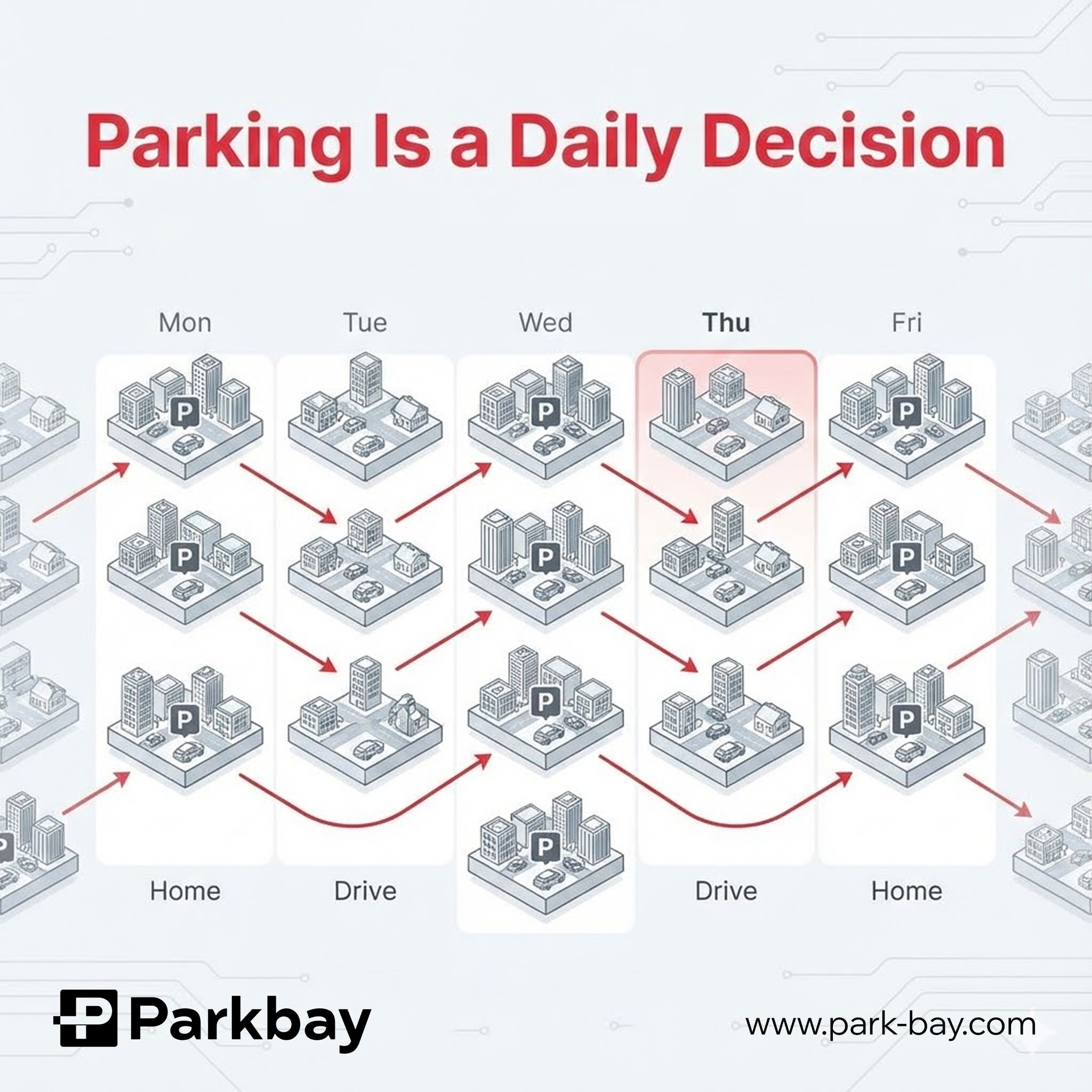
Leave a reply